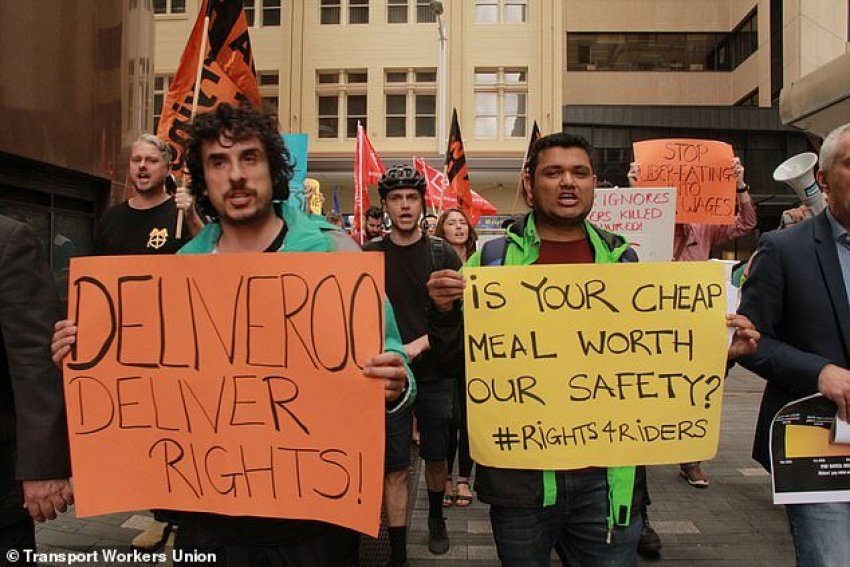
The Transport Workers Union (TWU) is urgently calling on the federal government to regulate the gig economy, following a British court ruling on February 19 that Uber drivers there are workers, not contractors.
The United Kingdom Supreme Court said Uber exercises control over its workers by unilaterally setting contract terms, pay rates and by monitoring them through its ratings system.
The court said drivers should be considered working not only while driving passengers, but while logged on to the app. Further, it ruled that the drivers are “very tightly defined and controlled by Uber” so they cannot be considered to be self-employed.
TWU national secretary Michael Kaine said on February 20 that the court ruling is “unequivocal” and that it has “implications for Australian law”. Gig economy workers have rights, he said.
The TWU wants the government to legislate to recognise the rights of rideshare drivers and food delivery riders. It said the need is urgent because of “delivery riders dying on the roads and rideshare drivers being ripped off”. The union wants an independent tribunal to ensure workers have the rights and protections they are entitled to.
The TWU, rideshare drivers and food delivery riders visited federal MPs on February 22 to discuss the British court decision.
The union is pursuing two court cases against Hungry Panda over unfairly sacking Sydney riders who took strike action over cuts to their pay. It is also perusing Deliveroo over its sacking, without warning, of rider Diego Franco. A final hearing in that case goes before the Fair Work Commission (FWC) on February 22. It is also persuing a case against Deliveroo for gross underpayment.
The TWU won an unfair dismissal case of Melbourne delivery rider Josh Klooger against Foodora in 2018. The company subsequently left Australia, but was forced to pay millions of dollars in underpaid wages and non-payment of superannuation to its workers.
Last December, Uber settled a case after the Federal Court looked likely to rule against it over its sacking of an Adelaide delivery driver who was 10 minutes late with an order.
Food delivery riders earn as little as $5 a delivery, a September survey by the TWU of 200 workers showed.
It found that 70% were struggling to pay bills and buy food; more than one in three had been injured on the job; and 80% received no support from the company.
Another TWU survey found that rideshare drivers earn an average of $12 an hour; 17% had been sexually harassed or assaulted by passengers; 85% said their wages had fallen while working in the gig economy; and 36% had been involved in a car accident while working.
Uber Eats riders protested outside the NSW Parliament in January for better rates and safer work. Food delivery drivers joined the strike around the country.
That action was organised following the deaths of three Uber Eats riders and pay cuts by the multi-billion dollar company. The TWU supported the protest and the riders’ call for the regulation of food delivery companies.
Nick McIntosh, TWU assistant national secretary, said something has to change. “Uber continues to push its workers to sweat and chase every dollar by slashing rates," he said. “Riders have no rights to a minimum rate, work injury insurance or safety gear.”
[Sign a petition here and visit the #Rights4Riders Campaign supported by UnionsNSW for more information.]